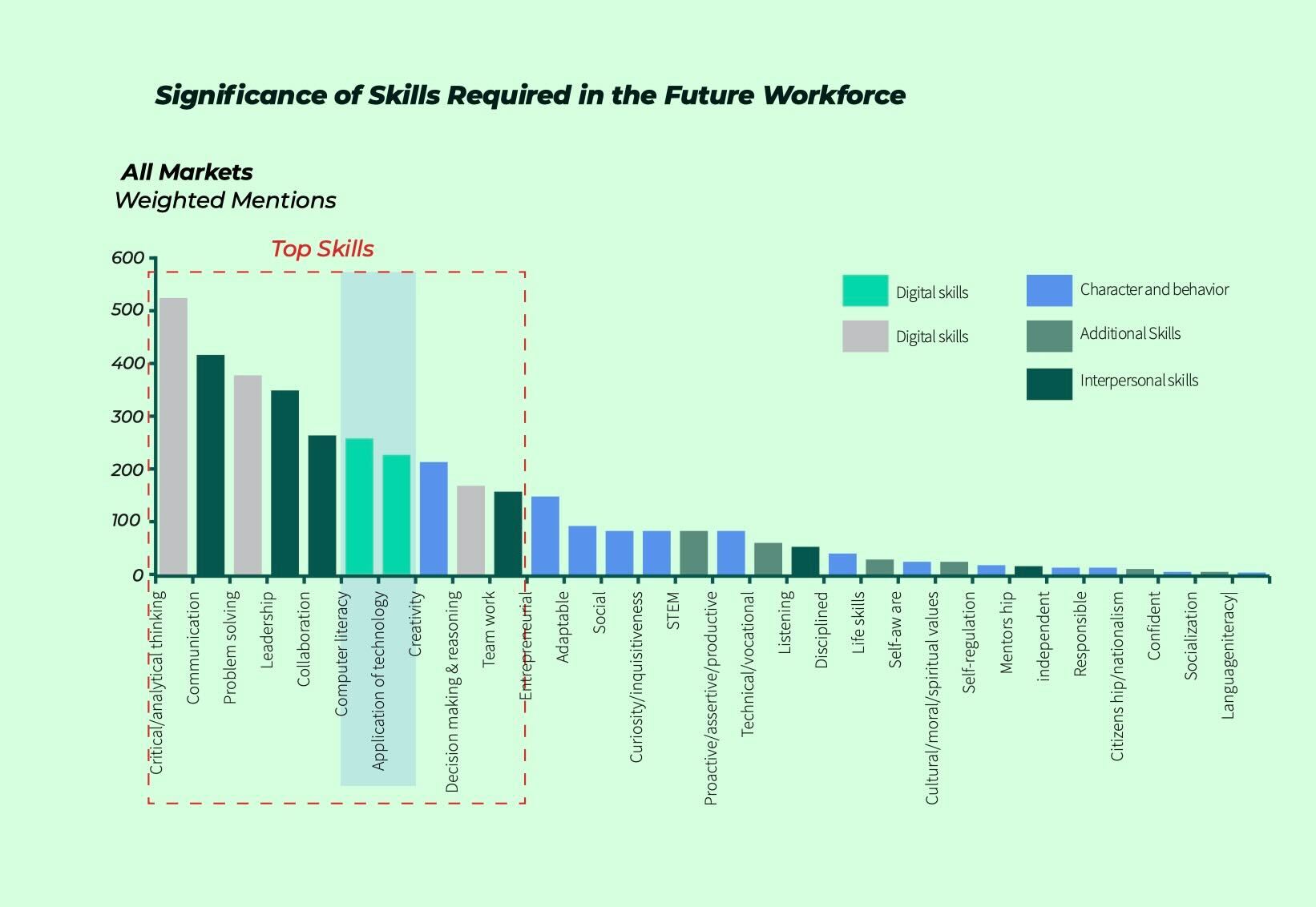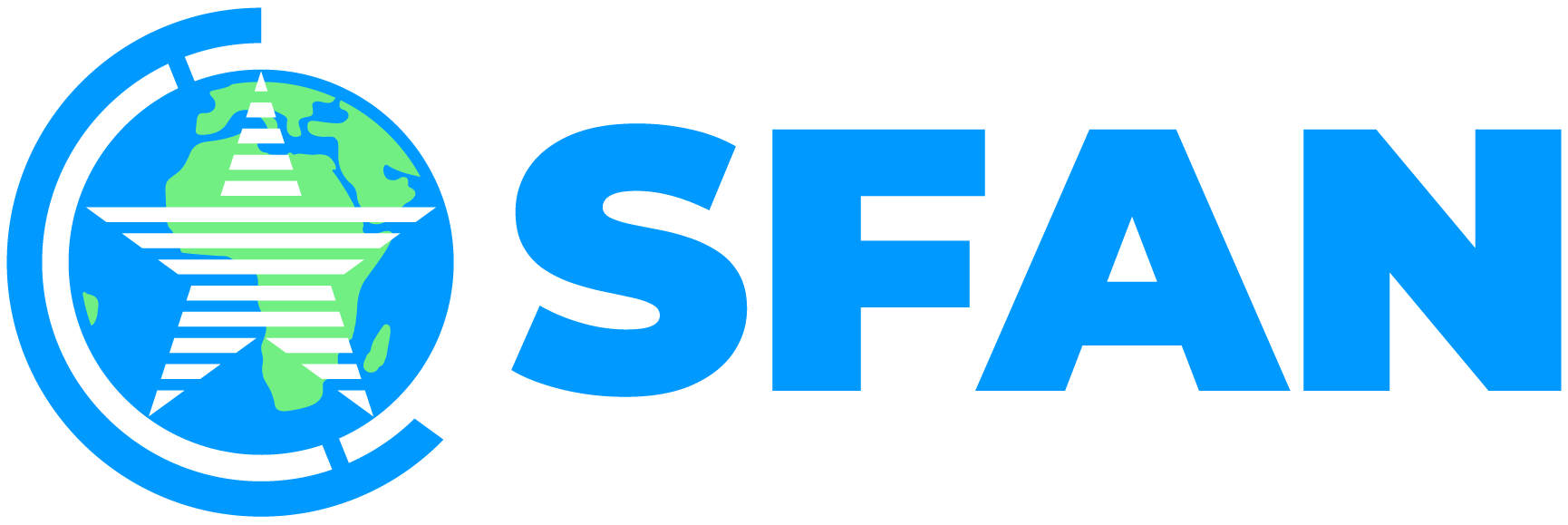Accra Talks Soft Skills on World Bank Poverty Eradication Day
by Tom-Chris Emewulu · Career advice
Tue, 23 Oct 2018 · 3 minute read
Share

The World Bank, in conjunction with the United Nations, held several events in various countries on October 17 to mark the International Day for Eradication of Poverty, 2018. For Africa, these events include an inspiring in-country dialogue and interactive video conference themed “Africa’s Youth and the Future of Work.”
I had the chance to join the Ghana event at the WB country office.
While speakers highlighted the importance of soft skills in today's workforce at both the in-country and video conference events, questions from some participants at the Accra event indicate that there's still uncertainty about what constitutes soft skills and how to develop them.
After a conversation with one accounting student who approached me during the networking session, I decided to explore this topic further. So in this article, you'll get simple explanations of the meaning of soft skills, why soft skills are becoming increasingly vital, and practical ways to develop soft skills. This is vital because research by LinkedIn shows that professionals with key soft skills get promoted 8% faster than those with only technical skills.
So, let’s take a deep dive.
What Are Soft Skills and Why DO You Need Them?
The best way to understand soft skills is by understanding the opposite: hard skills. It is generally accepted that hard skills are those skills you learned or studied in school. They're those skills you can define and quantify on paper. Hard skills are competencies like coding, designing graphics, accounting, etc.
So what are soft skills?
Soft skills are those abstract, intangible skills, competencies, and abilities that are difficult to quantify and are not usually taught as your core study area in the classroom. They are skills we use in navigating everyday life and making human connections. Soft skills are often referred to as transferable skills or professional skills.
From data collected in over two years of our methodological research in making sense of the persistent disconnect between education and industry requirements, below are three main sets of skills employers categorize as soft skills:
- People Skills. These include teamwork, interpersonal skills, communication, leadership, and customer orientation.
- Self-Reliance Skills. These include self-awareness, proactivity, willingness to learn, self-promotion, networking, and planning action.
- Life Skills. These include problem-solving, flexibility, business acumen, critical thinking, and commitment.
The importance of these skills in today’s competitive, fast-paced, digital work environment cannot be overemphasized.

Why Soft Skills Are Vital
The more intelligent technologies continue to redefine our workplace, the more human cognitive skills are sought after.
In fact, some thought leaders believe that soft skills are becoming today’s hard skills. The reason is clear. Building effective relationships, and getting along with people is becoming primal for today's workforce. You can be the world’s best software engineer or accountant, but if you don’t know how to work with people, if you cannot communicate your thoughts clearly; if you cannot deconstruct complexities and proffer simple solutions, you will not be less useful to your team.
Candidates that demonstrate these competencies will always be farther ahead in the workplace. Academic qualifications obviously have their place. They open doors for you and help you deliver your task. But soft skills are what keeps you on the job.
How Do You Develop Soft Skills?
Many activities can help you cultivate soft skills. For starters, programs like SFAN’s Readyforwork Career Accelerator help you become part of a team, present your work, defend your ideas, and write compelling projects...all vital soft skills needed for today's world of work. Through personalized educational contents crafted by employers, one-on-one coaching, and team conversations, participants are equipped with practical skills and exposed to real-world projects that empower them to take ownership of their career aspirations and grow in confidence that yields success.
Also, engaging in community service and volunteer programs are crucial ways of improving your soft skills. They help you generate goodwill that comes from teamwork and collaboration. Volunteering sharpens your leadership skills, networking skills, and problem-solving skills.
Furthermore, participating in group discussions, whether in school or in your local community, events and social networking can be another way of developing your soft skills. Learn to speak up whenever you can and get comfortable standing in front of people. If you are afraid of public speaking, well my friend, you're not alone - 41% of people across cultures around the world are terrified about public speaking. The vital thing to note is that public speaking is not a performance but a conversation from your heart.
One of the most important lessons I've learned in my career is that things change fast and knowing how to think on your feet is a skill that'll take you places. I can write about this in two books because of its importance. Train yourself to think on your feet and solve problems quickly. The most uninspiring thing you can do is to be the girl or boy that always goes to your boss or team leader with problems. Everyone sees problems but not everyone sees solutions. Hence, before you point out a problem, have a solution. It will set you apart from others.
How to Be a Problem Solver
Problem-solving skills are a life-long skill that EVERYBODY needs. To become a better problem solver, use this simple guide:
- Define: Pick your paper and pen or tablet. And define the problem you're facing. Make it as clear as a two-year-old can understand.
- Isolate: Write down the reasons why this challenge is persistent. Write all the causes you can remember or find from your research. This can mean talking to others or going online to gather information and track/isolate the root causes.
- Divide: Break down the problem into smaller, micro parts and brainstorm possible solutions to each component. For example, if your grades are terrible, micro solutions can be to go out less, cook at home, improve your study habits, or get more involved in class discussions. Set deadlines for action plans. That helps you move toward your ultimate goal.
- Conquer: Tackle your challenges with your detailed action plan. Focus on the hardest first. If you lack motivation, you can use the smaller actions to build your self-esteem. Reward yourself as you successfully tackle your challenges.
- Review: Evaluate and adjust your strategies based on outcomes. You will fall on your face sometimes. Be prepared to make adjustments. Unexpected issues will arise and sometimes your solution might not fully resolve the problem. Adjust and get help when needed.
Conclusion
The good news is that all these soft skills are learnable. With careful observation and practice, you can improve on each of them. The most interesting thing about humans is that nobody is born smart. We all start at zero. Believe it or not, there was a time when Einstein couldn’t do his ABCs. Chimamanda Adichie definitely didn’t start her career as a great communicator.
Neither was Barack Obama a remarkable leader as a teenager. They all learned and practiced these crafts until they perfected it. Now that you know the traits you should cultivate for the future of work, you too can do the same! Get ReadyforWork and upgrade your career.

